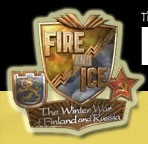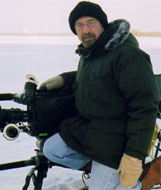

Arbitration – the process by which the parties to a dispute submit their differences to the judgment of an impartial person or group appointed by mutual consent
Armaments– the weapons and supplies of war; an equipped military force
Bolshevik – a member of the Marxist-Leninist Party or a supporter of one; a communist
Bolshevik Party - the Russian Social Democratic Worker’s Party that adopted Lenin’s theses on party organization in 1903
Capitalism – an economic system where means of production and distribution are privately owned, and development is the accumulation of profits gained in a free market
Coalition – a combination into one body; an alliance, especially temporary
Collectivization – to organize (an economy, industry, or enterprise) on the basis of collectivism
Commissar – an official of the Communist Party in charge of political indoctrination and the enforcement of party loyalty
Communism – system of government where the state plans and controls the economy and a single party holds power trying to make progress toward a higher social order in which all goods are equally shared by the people
Expansionist – a nation’s practice or policy of territorial or economic expansion
Fascism – system of government where authority is centralized under a dictator, stringent economic controls, suppression of the opposition through censorship, and a policy of belligerent nationalism and racism
Five-Year Plans - a series of nation-wide centralized exercises in rapid economic development in the Soviet Union. The plans were developed by the Gosplan, based on the general guidelines of the Communist Party, for economic development.
Great Purge - the name given to campaigns of political repression and persecution in the Soviet Union during the late 1930s. It involved the purge of the Communist Party of the Soviet Union and the persecution of unaffiliated persons
German blitzkrieg – a swift, sudden military offensive, usually by combined air and mobile land forces
Gulag – a network of forces labor camps in the former Soviet Union
Imperialism – the policy of extending a nation’s authority by territorial acquisition or by the establishment of economic and political hegemony over other nations
Industrialization – to develop/organize industry (a country or society, for example)
Karelian Isthmus – a land bridge in northwest Russia between Lake Ladoga and the Gulf of Finland
Kuusinen - a Finnish and Soviet politician, literature historian and poet, who after the defeat in the Finnish Civil War fled to Bolshevist Russia, where he worked until his death.
Lotta Svärd – an organization of Finnish women that supportedhelping to support the home front as lookouts, nurses, cooks, letter writers, mail deliverers and burial preparers.
Litvinov - Russian revolutionary and prominent Soviet diplomat.
Mannerheim Line - a defensive fortification line the Karelian Isthmus built by Finland against the Soviet Union.
Marxist – one that believes in or follows the ideas of Marx and Engels
Motti - a Finnish military slang for an encircled enemy unit.
Molotov – Soviet politician who was head of the Council of People’s Commissars and foreign minister
NKVD – Narodny Kommissariat Vnutrennikh Del (People’s Commissariat of Internal Affairs)
Parliamentary democracy – a democracy having a parliament
Red Army - the armed forces first organized by the Bolsheviks during the Russian Civil War in 1918. This organization became the army of the Soviet Union after the establishment of the USSR in 1922.
Red Guards - socialist or communist militia formed to instigate, support or defend revolutions. They were made up of armed workers as well as soldiers who defected, mutinied or had been decommissioned from the state's military.
Ribbentrop – German diplomat who helped negotiate the German-Soviet Nonaggression Pact of 1939; convicted of war crimes at Nuremburg after World War II
Stalinism – the bureaucratic, authoritarian exercise of state power and mechanistic application of Marxist-Leninist principles associated with Stalin
Siilasvuo – a Finnish general who led troops in the Winter War, Continuation War and Lapland War.
Socialist – advocates of socialism
Stalin – soviet politican, the successor of Lenin, general secretary of the Communist Party and premier of the USSR
Timoshenko - Soviet military commander, was the senior professional officer of the Red Army at the beginning of the German invasion of the Soviet Union in 1941.
White Army - the military arm of the White movement, a loose coalition of anti-Bolshevik forces in the Russian Civil War
White
Guard - the military arm of the White
movement, a loose coalition of anti-Bolshevik forces in the Russian
Civil War





